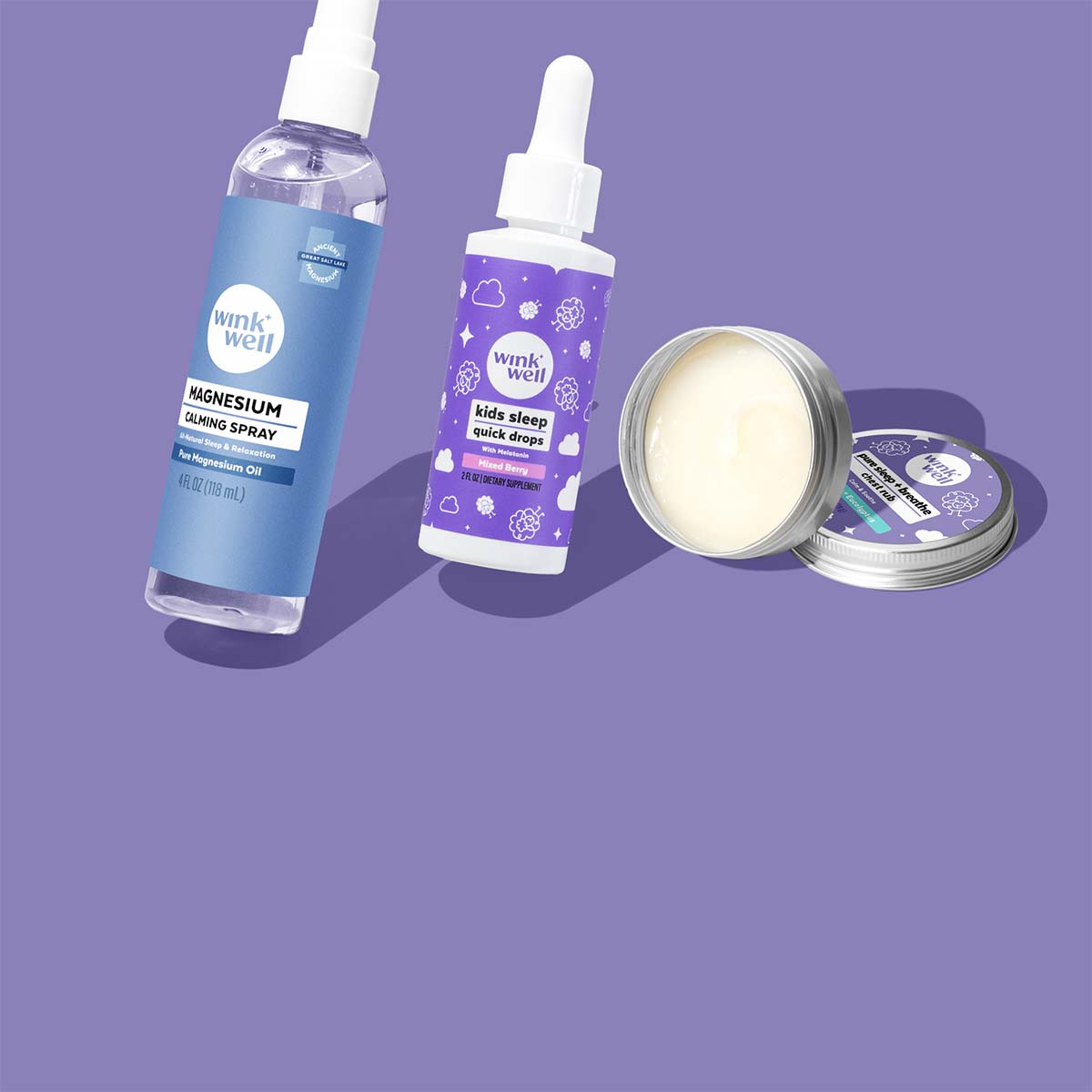Sleep does a body good.
According to Dr. Michael Twery, a sleep expert at NIH, “Sleep affects almost every tissue in our bodies. It affects growth and stress hormones, our immune system, appetite, breathing, blood pressure, and cardiovascular health.”
We know that when we get a good night’s rest, we feel better physically, and mentally but what exactly goes on in our bodies?
People used to believe that the body and brain were dormant during sleep but we want to show you otherwise.
Let’s talk about what your body and brain really do when you catch some beauty rest.

Hormones Take Over
Your body is like a well-oiled machine. When you hit the sack, your circadian rhythm (your body’s internal clock) starts regulating the production of several hormones:
- Melatonin: helps control your daily sleep-wake cycles.
- Leptin and Ghrelin: helps control your appetite.
- Growth hormone: supports bone/muscle development and metabolism.
- Cortisol: part of the body’s stress response system. During your first few hours of sleep, your cortisol levels will decrease. After you wake up, your cortisol levels will rise, helping you be alert for the day.
- Anti-Diuretic Hormone (ADH): helps you not have to pee in the middle of the night. We pee all day long, so why not at night? ADH is released by the brain under a circadian rhythm to switch off the need to urinate as often.
Your hormone levels will fluctuate during different sleep stages and your quality of sleep can even affect daytime hormone production.
Have you ever had a bad night’s rest and then ate more junk food the next day? That’s what we’re talking about.
What else happens?
Your Muscles Paralyze
While catching shut-eye, you cycle through periods of non-rapid eye movement sleep (NREM) and rapid eye movement sleep (REM). You have your most vivid dreams during REM sleep.
According to a series of experiments, the neurotransmitters gamma-aminobutyric acid (GABA) and glycine caused sleep paralysis by “switching off” the specialized cells in the brain that allow muscles to be active.
Some scientists believe this happens so we don’t physically act out our dreams.
Anyone who shares a bed with someone else should be grateful for that!
What about our immune system? Is that affected?
Your Immune System Kicks Into High Gear
What do most people need when they are sick or injured? Sleep. And lots of it.
While you sleep, your immune system releases cytokines (small proteins that are crucial in the control of the growth and activity of other immune system cells and blood cells.) AKA they help the immune system to do its job!
Cytokines help your body fight inflammation, infection, and trauma. If you’re not sleeping, your body doesn’t get the opportunity to repair itself.
Not only does it help your immune system kick butt, but it also helps your brain get to work.
Your Brain Processes the Day
When you go to sleep, your brain “wakes up”. It’s busy sorting and storing all the information from the day, which is really important for creating long-term memories.
Since your brain is processing all this information, it actually helps you prepare to make decisions while you’re awake. Have you ever woken up from your slumber with a great idea? Or an answer to a question that’s been bugging you? Your brain has been hard at work for you.
During your brain’s processing time, you can also think of it as housekeeping. Your brain takes time to clear out toxins that can have terrible effects if left unbothered. Just like we have to take out the trash regularly to keep our house clean, your brain needs to clean out the trash daily and that requires a good night’s rest.
How else does sleep help you out?
It’s Time To Chill Out (Sympathetic Nervous System)
Do you know what controls your flight or fight response? It’s your sympathetic nervous system. But like most things in life, we all need a break. During sleep, your sympathetic nervous system gets a chance to chill out, which is much needed.
If you are sleep-deprived, your sympathetic nervous system activity increases, which can show an increase in your blood pressure. This can lead to other issues, particularly heart issues.
Crazy how sleep or lack thereof can affect your brain, your appetite, your heart, and so much more.
Beauty Rest for the Brain and the Body
There aren’t many things that can go 24/7 non-stop without breaking down. We all need time to charge our battery, fill up our tank, and do a little housecleaning.
Getting the right amount of sleep helps you to recharge; which helps you:
- Fight off infection or recover from trauma (immune system)
- Make decisions AND create long-term memories
- Stick to healthy food choices during the day
- Prevent long-term health issues
- Perform at your best every day
So, if you want to be your best self, focus on creating a healthy sleep routine. Your brain and body will appreciate it!







Leave a comment
All comments are moderated before being published.
This site is protected by hCaptcha and the hCaptcha Privacy Policy and Terms of Service apply.